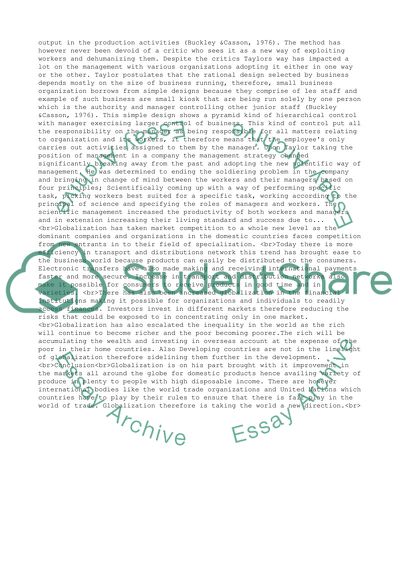Cite this document
(“Is rationalisation a desirable strategy for managing and organising Essay”, n.d.)
Is rationalisation a desirable strategy for managing and organising Essay. Retrieved from https://studentshare.org/management/1474764-is-rationalisation-a-desirable-strategy-for
Is rationalisation a desirable strategy for managing and organising Essay. Retrieved from https://studentshare.org/management/1474764-is-rationalisation-a-desirable-strategy-for
(Is Rationalisation a Desirable Strategy for Managing and Organising Essay)
Is Rationalisation a Desirable Strategy for Managing and Organising Essay. https://studentshare.org/management/1474764-is-rationalisation-a-desirable-strategy-for.
Is Rationalisation a Desirable Strategy for Managing and Organising Essay. https://studentshare.org/management/1474764-is-rationalisation-a-desirable-strategy-for.
“Is Rationalisation a Desirable Strategy for Managing and Organising Essay”, n.d. https://studentshare.org/management/1474764-is-rationalisation-a-desirable-strategy-for.


